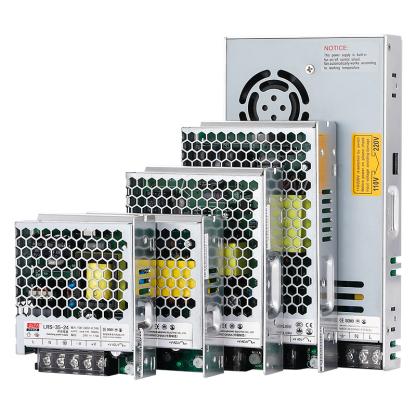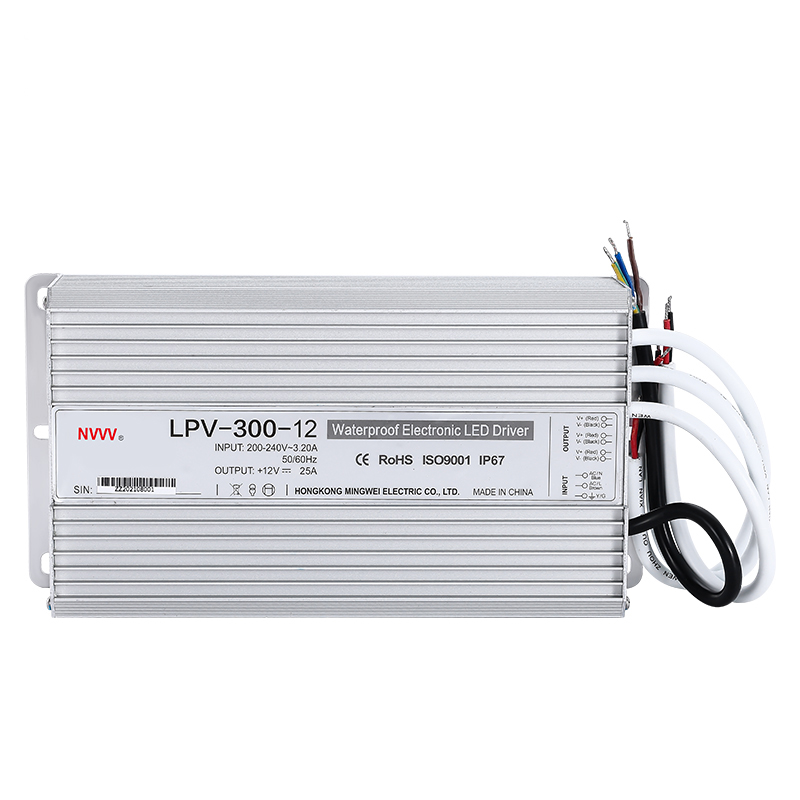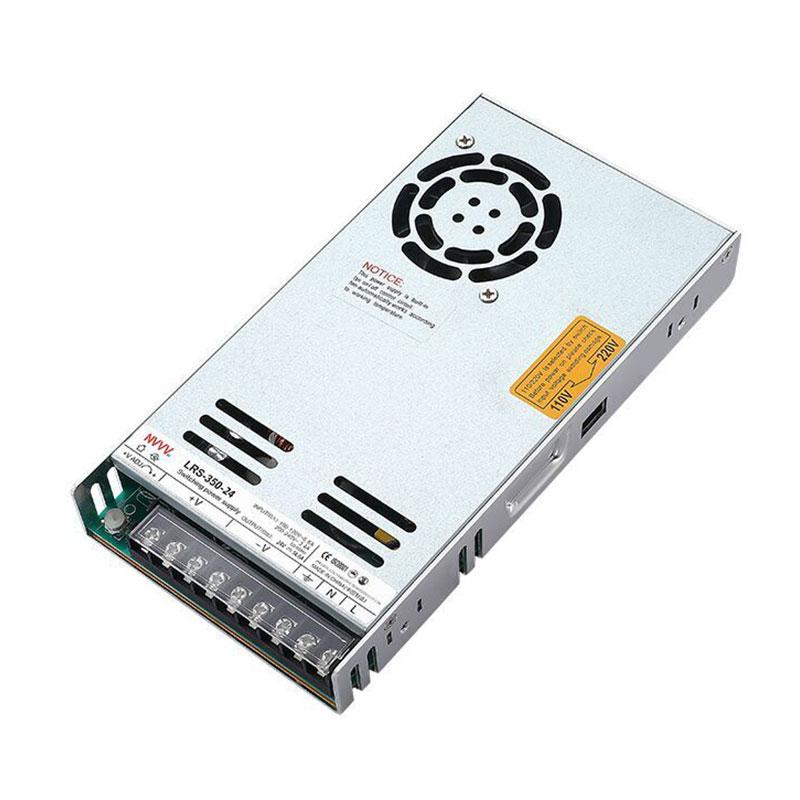Why is a power supply better than a battery?
With the rapid development of modern technology, the importance of power supplies in various electronic devices has become increasingly prominent. Whether it is a home computer, industrial equipment, or portable electronic products, power supplies are an indispensable core component. This article will discuss in detail the basic concept of power supplies, the dependence of computers on power supplies, and the advantages of power supplies over batteries. It will explore the application of 12V power supplies and 24V power supplies in different scenarios, and deeply understand the key role of switching power supplies (SMPS) in providing efficient power.
What is a power supply?
A power supply is a device that converts electrical energy from one form to another. In daily life, the power supply equipment we most often come into contact with is a device that converts alternating current (AC) to direct current (DC) for use in various electronic devices. The role of a power supply is not just a simple power conversion, but also includes functions such as voltage stabilization, filtering, and protection circuits to ensure that electronic devices can operate stably and safely.
Types of power supplies
Power supplies are mainly divided into two categories: linear power supplies and switching power supplies (SMPS). Linear power supplies change the output voltage by adjusting resistance. They have a simple structure, but low efficiency and large size. In contrast, the switching power supply adjusts the output through high-frequency switching, with high efficiency, small size and light weight, so it is widely used in modern electronic devices.
12V power supply and 24V power supply
In practical applications, according to different voltage requirements, power supplies can be divided into 12V power supplies and 24V power supplies. 12V power supplies are common in small electronic devices such as computers, LED lights, monitoring equipment, etc., while 24V power supplies are mostly used in industrial equipment, communication equipment and some high-power electronic equipment. These two power supplies have their own advantages in practical applications, and the selection needs to be made according to specific needs.
Advantages of switching power supply (SMPS)
Switching power supply (SMPS) is a representative of modern power supply technology, with the characteristics of high efficiency, high reliability, small size and light weight. SMPS adjusts the output voltage through high-frequency switching, which can greatly reduce energy loss and improve the overall efficiency of the system. In addition, SMPS also has the advantages of low electromagnetic interference, strong adaptability and good scalability, and is widely used in computers, telecommunications equipment, industrial control, household appliances and other fields.
In summary, the power supply is the core component of electronic equipment, which ensures the normal operation of the equipment by providing stable power. 12V power supply and 24V power supply have their own advantages in different application scenarios, while switching power supply (SMPS) has become the mainstream choice of modern power supply technology with its high efficiency and reliability.
Does every computer need a power supply?
Yes, every computer needs a power supply. Whether it is a desktop, laptop or server, the power supply is an indispensable component. The power supply provides the required power for each component of the computer to ensure the normal operation of the system.
Desktop power supply
A desktop power supply converts 220V AC power into DC power required by various components of the computer. Typical desktop power supplies include 12V, 5V and 3.3V outputs, which are used to supply components such as CPU, hard disk, graphics card, motherboard, etc. Among them, 12V power supply is mainly used to drive high-power devices such as CPU and graphics card.
Laptop power supply
Laptop power supply is different from desktop power supply and usually exists in the form of an external power adapter. The laptop power adapter converts AC power to DC power and then provides power to the laptop through the battery. Although the laptop can run on batteries, the power adapter is still necessary to provide continuous power when the battery is low.
Application of Switching Power Supply (SMPS) in Computers
Whether it is a desktop or a laptop, its power supply belongs to the switching mode power supply (SMPS). The application of switching power supply in computers has significant advantages:
High efficiency: The conversion efficiency of SMPS is usually above 80%, which effectively reduces energy loss.
Stable output: Through high-frequency switching regulation, SMPS can provide stable voltage output to ensure the normal operation of various components of the computer.
Small size: SMPS is small in size and light in weight, suitable for portable devices such as notebooks.
Multi-channel output: SMPS can provide multiple voltage outputs as needed, such as 12V, 5V and 3.3V, to meet the needs of different components of the computer.
Application of 24V power supply in specific scenarios
Although most home computers use 12V power supply, 24V power supply also has its role in some specific application scenarios. For example, industrial-grade computers or servers may require higher voltages to drive high-power devices, and 24V power supply is particularly important at this time.
In summary, no matter what type of computer, it cannot be separated from the support of power supply. The power supply not only provides the necessary power for the computer, but also ensures the overall performance and reliability of the system through its stability and efficiency.
Why is the power supply better than the battery?
Although batteries play an irreplaceable role in portable devices, in many application scenarios, the power supply has more obvious advantages than batteries. The power supply provides continuous and stable power, which can support long-term and high-intensity work, while the battery is limited by capacity and life, and often cannot meet the needs of long-term use.
Continuity and stability
The power supply can continuously provide power by connecting to the power grid. This means that the equipment using the power supply can work uninterruptedly for a long time without worrying about running out of power. For example, a desktop computer using a 12V power supply can run all day without having to charge frequently like a battery-powered laptop.
High efficiency and high power output
The power supply can provide higher power output and is suitable for the use of high-power devices. The application of 24V power supply in industrial and communication equipment is a typical example. These devices require higher voltage and current to drive their operation, and batteries are unable to do so in this case. In addition, the high-efficiency conversion of the switching power supply (SMPS) can maximize the use of power and reduce energy waste.
Economical
From an economic point of view, power supplies are more cost-effective than batteries. Although batteries provide a certain degree of portability, they are expensive and need to be replaced regularly. Power supplies are relatively cheap, have a long service life, do not need to be replaced frequently, and are more economical for long-term use.
Environmentally friendly
The production and disposal of batteries have a great impact on the environment. Batteries contain a large amount of heavy metals and harmful chemicals, which seriously pollute the environment. In contrast, power supplies do not produce waste during use and are more environmentally friendly. Moreover, the development of modern switching power supply (SMPS) technology has made power supplies more energy efficient, further reducing energy consumption and environmental pollution.
Versatility
Power supplies can provide multiple voltage outputs according to the needs of different devices. For example, a switching power supply (SMPS) can provide 12V power supply and 24V power supply at the same time to meet the power supply needs of different devices. Batteries can often only provide a single voltage output and have poor flexibility.
In summary, although batteries have their irreplaceable role in portable devices, in many application scenarios, power supplies have more obvious advantages in terms of sustainability, economy and environmental protection. The high efficiency, high stability and versatility of power supply make it the best choice for powering many devices.
Conclusion
In summary, as the core component of electronic devices, the importance of power supply is self-evident. From basic concepts to practical applications, both 12V power supply and 24V power supply have shown their respective advantages in different scenarios. Compared with batteries, power supply provides more durable, stable and efficient power, especially the widespread application of switch mode power supply (SMPS), which significantly improves the overall performance of the device. By deeply understanding the various characteristics and applications of power supply, we can better select and use power supply to ensure the efficient and stable operation of electronic equipment.











